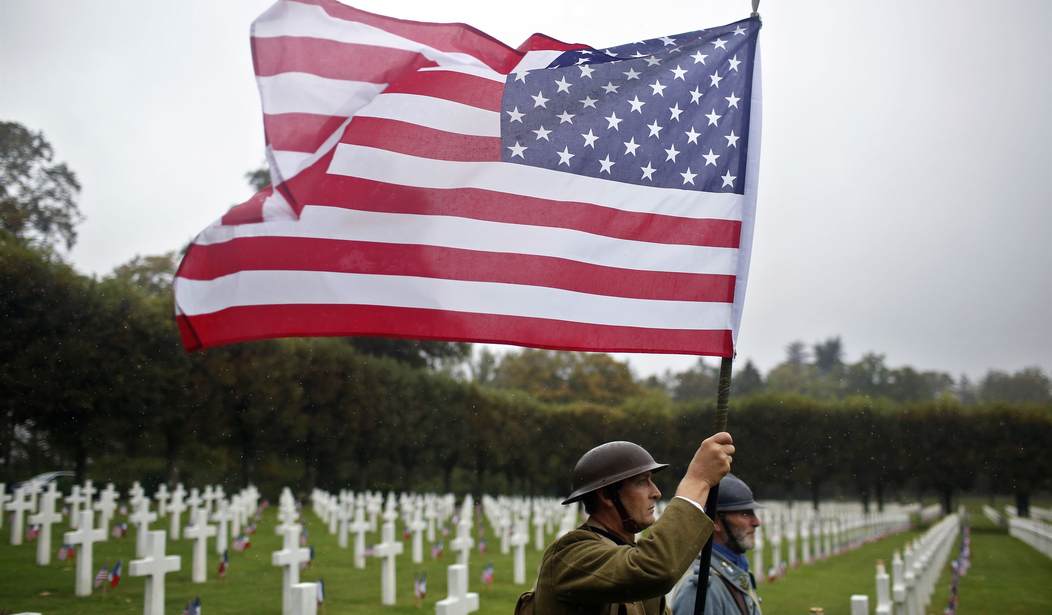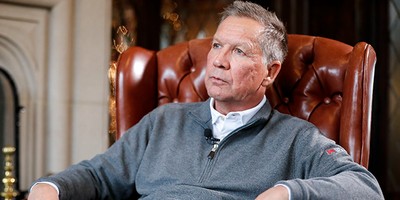We have reached one of those points in our nation’s life when many Americans feel more divided than united. Politicians and pundits hurl charges of treason. The two parties are at each other’s throats. Many of us know friends or family members who’ve stopped speaking because of events in Washington, D.C.
Some Americans seem ready to believe the worst of their country and fellow Americans. Respect for bedrock institutions like the press, government, and Wall Street has eroded away. Many young people say they value patriotism less than previous generations.
What to do? There is no quick, short-term fix, but here’s a good one for the long term: American history.
Not social studies, or politics dressed up as history, or attempts to run the country down, but history that actually lifts us. History—especially American history—can encourage us toward virtues and truths badly needed in our time.
First and perhaps most important, it can encourage hope. In the midst of terrible civil war, Abraham Lincoln called this nation “the last best hope of earth.” For nearly a century before Lincoln, and easily for a century afterward, Americans would not have doubted that assertion.
Our history is full of resounding stories of hope in times of struggle. Think of those Jamestown and Plymouth settlers, standing on the edge of a New World, equipped with little more than hope for freedom and better lives. Or the Rev. Martin Luther King at the Lincoln Memorial, speaking of his dream of a day when all people will be judged not by the color of their skin but by the content of their character.
History can encourage gratitude for our remarkable country and for those who made it possible for us to lead free and happy lives. Time and again, our ancestors have chosen wisely, and, by their demeanors, defined us as a people, sometimes with great sacrifice.
Recommended
Think of those Americans at Philadelphia in 1787 who devised the most miraculous political document in history just as the young nation seemed to be falling apart. Or Americans standing fast against totalitarianism during the Cold War. Knowing those stories helps make us thankful to be Americans.
History, properly told and learned, encourages truth. It does not cover up wrongs. It tells the story of both justices and injustices. And it is true that, at times, the United States has fallen tragically short of its ideals.
But we must remember that America is still a great success story. When we criticize—and criticize we must—we should play the part of what James Madison called a “loving critic.” The late Senator Daniel Patrick Moynihan put it this way: “Am I embarrassed to speak for a less than perfect democracy? Not one bit. Find me a better one.”
History encourages patriotism. It reminds us that our founding principles of liberty and equality are among humanity’s noblest aspirations. That the United States was the first nation in history created out of the belief that people should govern themselves. That no other country has done a better job of establishing equal rights for all citizens.
Every American, regardless of background, has a claim on our great history. We have all inherited the principles laid down in the Declaration of Independence. Lincoln called that claim an “electric cord” that “links the hearts of patriotic and liberty-loving men together, that will link those patriotic hearts as long as the love of freedom exists in the minds of men throughout the world.”
Yes, I know it sounds old-fashioned, but American history can encourage students, politicians, journalists, and all of us toward these virtues and truths that link us together. If told honestly and well, it can unite us in divided times.
Dr. William J. Bennett, former United States Secretary of Education (1985–1988), is one of America’s most influential and respected voices on cultural, political, and educational issues. He recently published a single-edition volume of his acclaimed trilogy, America: The Last Best Hope, which tells the inspiring narrative of our exceptional nation.

























Join the conversation as a VIP Member